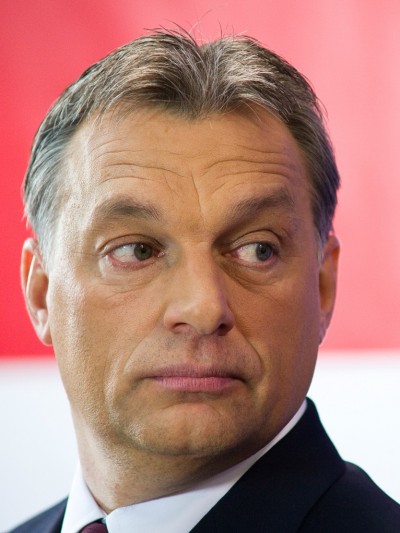
“Is it not worrying in itself that European Christianity is now barely able to keep Europe Christian?” Viktor Orbán, Frankfurter Allgemeine Zeitung, Sep 3, 2015
The Hungarian Prime Minister, Viktor Orbán, is getting his figures, and history, muddled. In many contexts, history is often cited, less as an opportunity to inspire than to enrage and enforce a status quo. The better spirits of men and women are left behind, and in place, fear plays takes centre stage.
The human throngs making their way to various European transit points as of this writing have struck fear into the rightwing Orbán government. A range of measures have been enacted, the sort of one would expect from a government in fear of its own life.
These include three-year jail terms for those breaching the razor-wire barrier being built along the Hungarian-Serbian border. Hungarian citizens who collaborate or provide assistance to that end, including aid and shelter, also face state sanctioned punishments.
Orbán’s views on resettling Syrian refugees, among others, in Europe, are making their way up the charts of populist eccentricity. For him, Europe is under incessant siege, and rather than treating Clio as wise and far sighted, he is treating the Muse of history as insightfully dangerous.
 The Turkish horde that besieged Vienna twice during the might of the Ottoman Empire has been reincarnated. “We shouldn’t forget that the people who are coming here grew up in a different religion and represent a completely different culture. Most are not Christian, but Muslim.”[1]
The Turkish horde that besieged Vienna twice during the might of the Ottoman Empire has been reincarnated. “We shouldn’t forget that the people who are coming here grew up in a different religion and represent a completely different culture. Most are not Christian, but Muslim.”[1]
This theme is a constant one for Orbán, despite having been an atheist. The mysticism that accompanies the craft of protecting the state brings with it strange stimulants. The sacred state becomes the voice of God – or some deity, and Orbán doesn’t resist harking back to it.
The European centre, in this context, is Christian, and by definition, opposed to perceived rivals. This insular myth allows Orbán to keep busy about a fiction: that Europe was somehow immutable in its institutions and cultures, worshipping at the same altar. Islam had no role to play, despite being Europe’s cultural incubator for centuries as the sacred centre slumbered.
By implication, allowing non-Christian individuals (read Muslim) into the centre is an invitation to conquest, surrender and subjugation. “Everything which is now taking place before our eyes threatens to have explosive consequences for the whole of Europe. We must acknowledge that the European Union’s misguided immigration policy is responsible for this situation.”
This is the classic counter rhetoric that warns of re-visiting victimisation. The Hungarian sense of being done out of history’s rewards is powerful. From empire to ruin is a powerful theme, one that resounds from the battlegrounds of Mohács (1526), where Suleiman the Magnificent dealt the death blow to the Jagiellon dynasty, to World War II. Outsiders, invaders and sinister external forces are the demons to be wary of. As with the aftermath of Mohács, partition from all sides will stare you in the face.
Orbán, suitably aware of these historical references, has put his money (well, the taxpayers) where his mouth is. Church-owned schools have been allowed, courtesy of benefits, to flourish, enabling the spread of “national, Christian and European traditions”. These are the symbolic trenches, awaiting the enemy that is around the corner.
To critics, the Hungarian leader has one, repeated rebuff. And yes, it comes in the form of historical experience, because that explains everything. To former Polish prime minister and current president of the European Council, Donald Tusk, Orbán explained that he had “to say that when it comes to living together with Muslim communities, we are the only ones who have experience because we had the possibility to go through that experience for 150 years.”[2] (He conveniently leaves the Serbs and Greeks out of this equation.)
Such commentary seems at odds with what was said in 2013 during the opening of a Hungarian cultural centre in Istanbul. Then, at least, the historically invasive Turk was treated with greater accommodation. “Being Hungarian in Turkey is a good thing,” suggested Orbán, “and being Turkish in Hungary is a good thing.”[3]
Not so now. The militarisation of the entire refugee issue is in full swing. From London to Budapest, there is a sense that asylum seekers and designated refugees have hidden arms, dangerous messengers of a subterranean Caliphate. People trafficking networks are their allies.
In all of this, Orbán gives an impression that Europe should thank this modern soldier against immigration, guarding the gates against the hordes. All this, despite the recent decision to use buses to transfer the initially detained refugees to Austria and Germany. “Ceterum censeo: there is no alternative, and we have no option but to defend our borders.” This absurdity which leads to a self-imposed logic of fear is reductionist and even pathological: avoid, whatever the cost, another Mohács.
Dr. Binoy Kampmark was a Commonwealth Scholar at Selwyn College, Cambridge. He lectures at RMIT University, Melbourne. Email: [email protected]
Notes
[3] http://dailynewshungary.com/orban-opens-hungarian-cultural-centre-in-istanbul/
Source Article from http://www.globalresearch.ca/hungarys-recipe-for-asylum-seekers-european-christianity-is-threatened-militarization-of-the-refugee-issue-in-full-swing/5473880
Views: 0
 RSS Feed
RSS Feed

















 September 5th, 2015
September 5th, 2015  Awake Goy
Awake Goy 
 Posted in
Posted in 
















